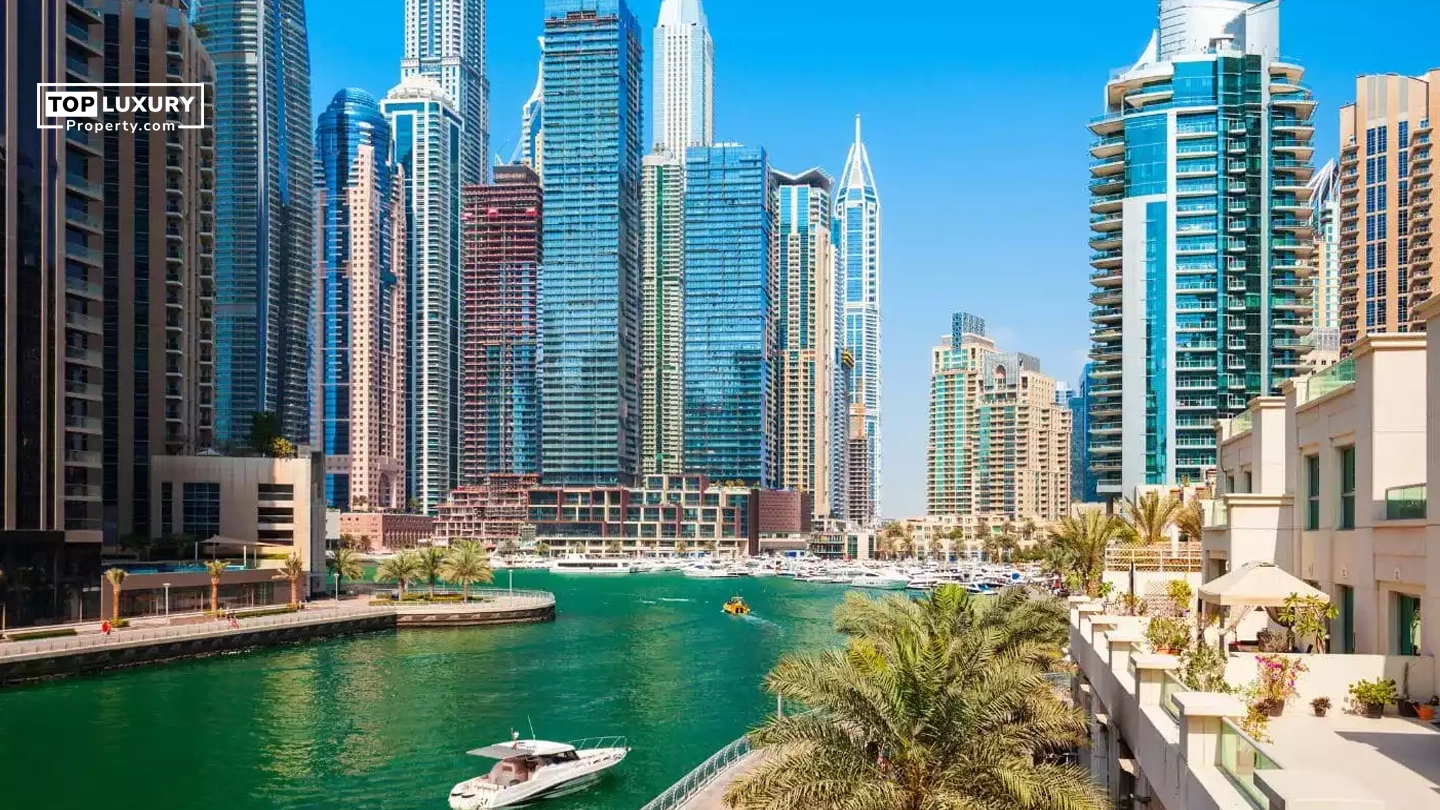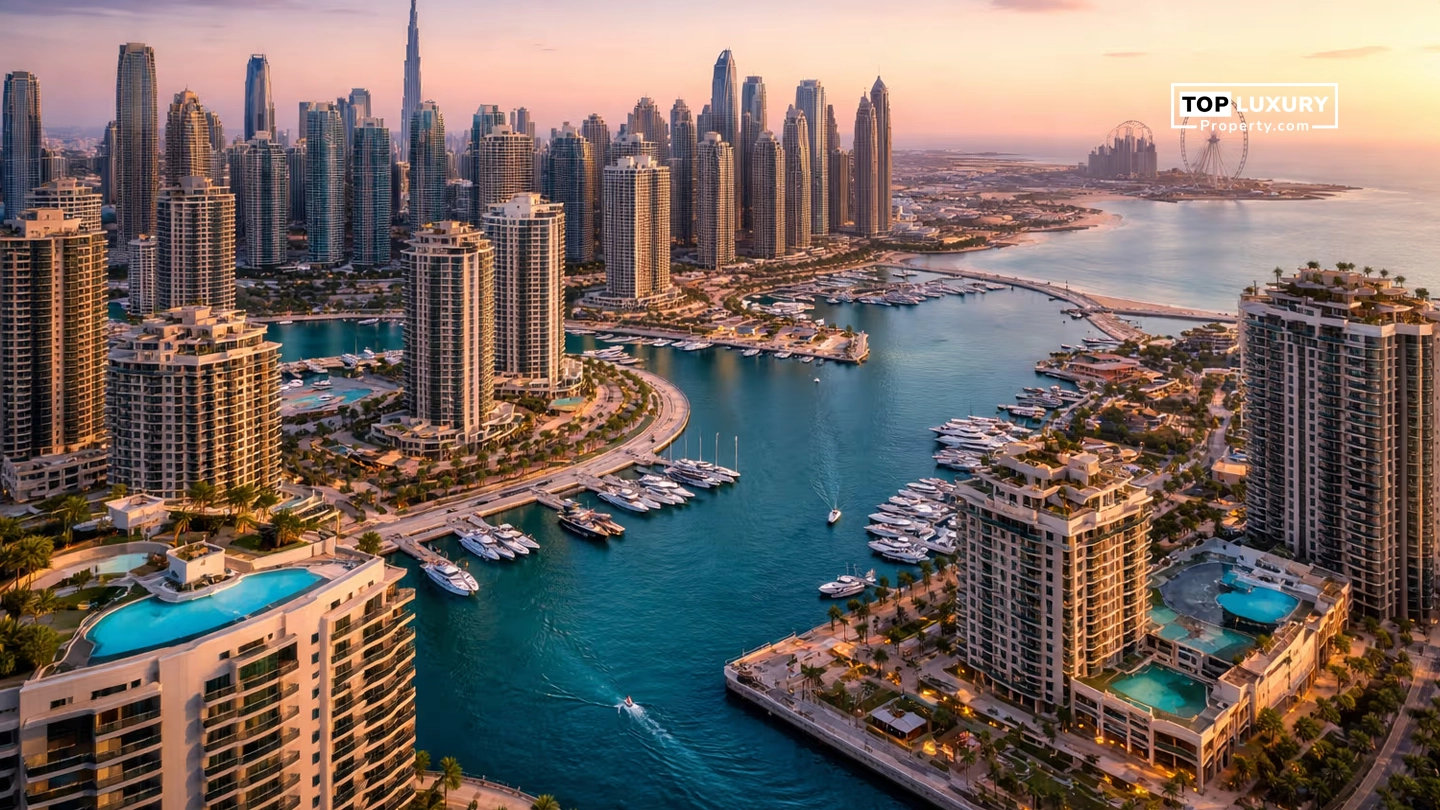Are you looking for a perfect place for property investment? And also thinking where I get the best returns on my investment. Dubai is what you’re looking for.
Why Dubai? It is an obvious question. Answer lines in its past performance. You will also be surprised that Dubai real estate transactions hit AED 142.7 billion in the first quarter of 2025 alone - the second highest quarterly number ever recorded. This shows a 30.3% increase in value from the previous year. The average price per square foot now sits at AED 1,563 up from AED 889 in 2021 - a 76% jump in just four years.
From this small insight, you can imagine what Dubai real estate is like. But before any investment, we need a broader picture of the market.
The Dubai Advantage: What Makes This Market Special
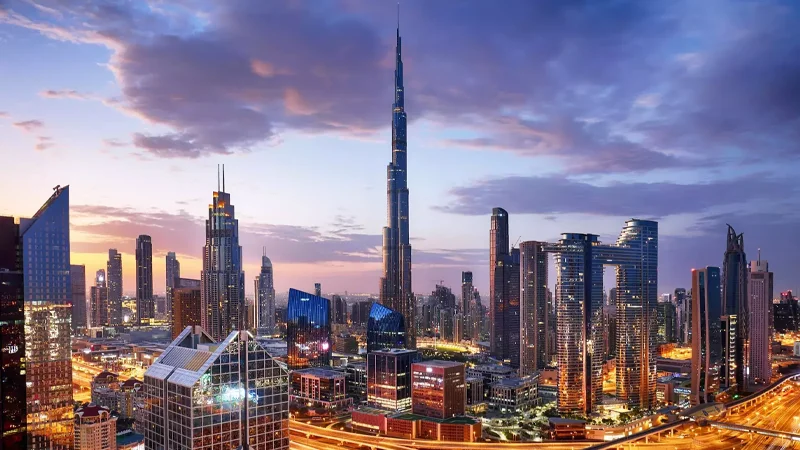
From tax perks to stunning buildings, Dubai’s real estate market is in a class by itself. The city gives investors a real estate experience you can’t find anywhere else in the world, blending luxury, cutting-edge ideas, and ease of living.
The prime location linking Eastern and Western markets gives rise to unmatched property investment benefits in Dubai chances for international buyers. The government backs growth through policies that favor investors such as looser visa rules and appealing tax breaks. Not only for investor benefits, the Dubai government also brings the Dubai 2040 urban plan and Real Estate Strategy 2033 to boost the Dubai real estate market further.
The numbers tell a compelling story - Dubai’s property market is going towards a sustainable growth. Property transactions increased by 20% compared to last year, while prices for both apartments and villas rose about 21% annually. The residential property sector closed in 2024 with 47 months of continuous price rises, although the rate of appreciation is starting to stabilize around 1% month-on-month.
According to recent data, Dubai real estate prices fell by 0.57% in January 2025, marking the first decline since mid-2022 and signaling a potential market stabilization. Despite this slight dip, March recorded the highest-ever sales volume for the month with 15,028 transactions.
Key Benefits of Investing in Dubai Real Estate

What makes Dubai so appealing to global investors? These advantages create a compelling investment case.
Tax Advantages
Investors enjoy a completely tax-free environment in Dubai, significantly enhancing profitability. No property tax, capital gains tax, or income tax means rental income stays in your pocket without deductions. This fiscal environment stands in stark contrast to most global cities, where various taxes can consume 20-40% of investment returns. Foreign investors particularly benefit from this structure when comparing potential returns across international markets.
High Rental Yields
Average rental yields range from 6-7% across Dubai, substantially outperforming global cities like London (2-4%) or Hong Kong (2-3%). Some areas offer exceptionally strong returns – Dubai Investments Park topped charts at 10.3%, followed by International City at 9.4%. Short-term holiday homes generate even higher returns, reaching 12-15% in tourist-friendly areas. Mid-range neighborhoods like Dubai Sports City and Motor City provide yields exceeding 9%, making them particularly attractive for cash flow-focused investors.
Capital Appreciation
Property prices increased by 20% in 2024, with off-plan properties typically appreciating 15-20% from purchase to handover. The secondary market demonstrates this growth clearly, with re-sale profits 34% higher than the previous year.
Some areas have experienced exceptional growth – Barsha Heights saw apartment prices increase by 33% in 2024, while Nad Al Sheba villa prices surged 54% year-on-year. Experts forecast an 8% rise in residential values for 2025, continuing the strong growth trajectory.
Residency Benefits
Buying property in Dubai allows foreign investors to get long-term residency. The Golden Visa program gives a chance to obtain 10-year residency after investing AED 2 million. Recent changes have made this program easier to access and simplified the application process. This residency benefits adds a lot of value on top of the property investment for international buyers looking for stability in the region and freedom to move .
Population Growth
Dubai experienced nearly 10% population growth in 2022 alone. It keeps driving demand for housing in all areas. Experts predict the population will reach 5.8 million by 2040, a big jump from the current 3.6 million people living there.
Dubai also continues to attract global high-net-worth individuals (HNWIs). Right now, 212 people with over $100 million in assets and 15 billionaires call Dubai home. In the last ten years, the number of millionaires in Dubai has grown by 78%. This makes the city a top spot for international wealth.
The government is working hard to grow different parts of the economy. You will be surprised to know that Dubai also achieved a historic milestone in FDI attraction with 1,826 announced FDI projects, an 11% increase from 1,650 projects in 2023.
For this huge growth, Dubai generated a total of 58,680 estimated jobs through FDI in 2024, a 31% increase from 2023. This brings in experts from everywhere. As more people move to Dubai more people need places to rent. This pushes up property prices and creates a good environment for real estate investments to keep growing.
Future Trends of the Dubai Real Estate Market
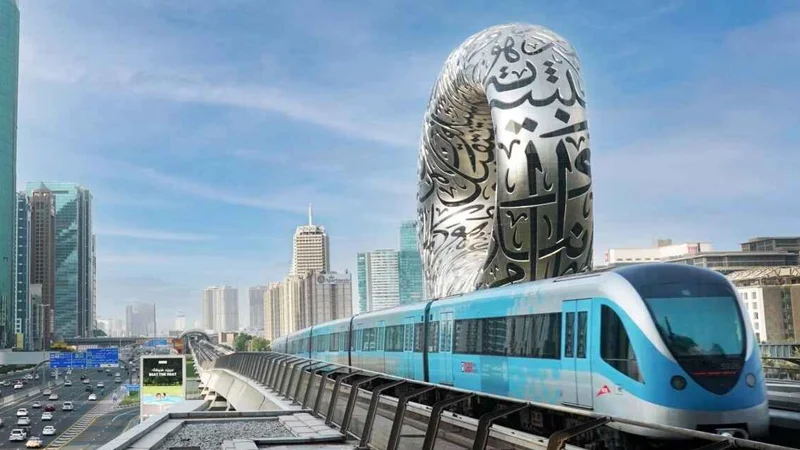
We already understand the key benefits of Investing in Dubai real estate. But Dubai real estate is growing day by day. So, it is necessary to understand the future trends of this market.
Growing Demand for Affordable Housing
Affordability has emerged as a central theme in the Dubai real estate market and will likely be a focal point throughout 2025. Market analysts note that for most potential buyers concerned about mortgage payments, housing affordability has become the primary consideration – with monthly installment amounts taking precedence over traditional valuation metrics.
The Dubai real estate landscape has responded to this demand through increasingly generous payment plans, with developers essentially becoming financiers in a “Buy Now, Pay Later” model for property purchases. This has widened the gap between off-plan and ready property prices, with off-plan sales accounting for nearly 75% of overall transactions in 2024, up from 45% in 2019.
Median prices for ready homes have started to decline, while buyers increasingly move toward outskirts areas to secure more affordable deals. This has sparked price increases in these peripheral locations as developers launch new projects targeting the mid-market segment. According to market experts, “For affordability to become the focal point as it has, perhaps market forces will take care of themselves and prices will give up some of their gains. Or perhaps, government policies to encourage affordability will kick in, forcing developers to offer lower prices.”
Sustainable and Smart Development
Dubai embraces sustainability in new projects like Dubai Sustainable City. These developments have an influence on energy-efficient designs and renewable energy sources. Arcadis has recognized Dubai as a leading sustainable city in the GCC region. It ranks first in the region and 33rd globally . Green-certified buildings in the UAE earn up to 9% higher rental premiums than non-certified ones.
Major developers have reduced energy consumption by 30% in new projects. Water-saving measures have reduced consumption by up to 40%. Urban planners now focus on the “20-minute city” idea. This concept aims to create neighborhoods where people can walk to essential services.
Expanded Infrastructure
Ongoing infrastructure improvements include metro and public transport system expansions, new roads, and bridges enhancing connectivity. The Al Maktoum International Airport is set to become the biggest in the world, which will make nearby properties worth more.
The city plans to add a Blue Line to its metro. This 30-kilometer stretch will be ready by 2029. There’s also a new Gold Line coming set to open in 2033. These additions aim to make travel easier and cut down on traffic jams.
Areas near transportation hubs typically experience faster appreciation rates as accessibility improves. The Dubai government is serious about this growth. They’ve set aside 46% of their 2025 budget for infrastructure and related building projects.
These infrastructure projects show a long-term commitment to growth giving investors confidence across the emirate in new areas with planned transit links.
Shift Towards Minimalism
Elite property buyers in Dubai now prefer simple design over flashy looks. They focus on simplicity, function, and calm beauty with clean lines, neutral colors, and smooth indoor-outdoor flow. This matches a worldwide trend towards subtle elegance and chosen refinement in high-end real estate.
New developments have open layouts, lots of natural light, and top-quality but simple materials. This plain approach makes spaces feel bigger and more peaceful attracting foreign buyers who value smart simplicity over showy displays of wealth.
Location with Infrastructure Integration
The idea of location has grown beyond just being close to landmarks. Nowadays, buyers care about complete communities that have everything they need within walking distance. Areas like Dubai Hills Estate, Downtown Dubai, and Business Bay are changing what modern living means. They mix homes, shops, and fun spots in self-contained centers.
An expert in the field says, “The future of Dubai’s property market isn’t just about where you live — it’s about how you live.” This philosophy drives development of communities that prioritize convenience, connectivity, and enhanced quality of life through thoughtful urban planning and amenities.
Luxury Market Expansion
The luxury segment stays strong with high international demand for branded residences. Major developers already tie up with Ritz-Carlton, Four Seasons, St. Regis, Aman, Bulgari, and Six Senses. As of 2024 data, Dubai has 121 branded residences, encompassing 39,046 units. Key areas like Palm Jumeirah keep their charm, with villa rent prices going up by 52% compared to last year.
Developers keep launching high-end projects with modern facilities and unique designs. The luxury market shows remarkable strength during wider economic shifts backed by rich international buyers looking for trophy properties and to spread out their investments.
Tourism-Driven Real Estate Growth
The short-term rental market does well with fewer rules than other countries leading to higher returns than regular long-term rentals. Properties close to tourist spots get top rental prices in areas like Palm Jumeirah and Downtown Dubai.
In 2024, Dubai welcomed 18.72 million international overnight visitors, a 9% increase from the previous year surpassing the 2023 record of 17.15 million. This achievement goes beyond recent milestones. In November 2022, Sheikh Mohammed bin Rashid unveiled a national tourism strategy extending to 2031.
This plan aims to draw Dh 100 billion in additional tourism investments (ensuring the tourism sector contributes Dh450bn to Dubai’s GDP in 2031) and host 40 million hotel guests by 2031. This strategy fuels high demand for short-stay rentals and hotel properties. Dubai’s global appeal enhances rental income potential and future resale opportunities across various market segments.
Smart Homes and PropTech Integration
New tech changes properties across Dubai. Smart home systems now come standard in new buildings. These systems help manage energy, boost security, and control things . This makes life easier and cuts down on running costs.
Property technology (PropTech) impacts how people buy, sell, and manage real estate. It does this through virtual tours, online deals, and blockchain use. The Dubai Land Department (DLD) just rolled out the DLD Smart Rental Index.
This tool aims to cause a revolution in the rental scene. It gives up-to-the-minute insights into home rental markets. These new ideas make property records safer and clearer. They also make it simpler and more open for buyers from all over to invest in Dubai real estate.
Development of Commercial Real Estate
The arrival of international companies setting up regional offices in Dubai has influenced the demand for office space. Tourist attractions and a growing population boost retail properties, while industrial and logistics facilities grow near transport centers.
In 2024, commercial deals went up by 10.1% to 4,304 units leading to sales worth Dh9.7 billion. Projects that mix homes, businesses, and retail offering diversification opportunities beyond purely residential investments.
Prime Investment Areas in the Dubai Real Estate market
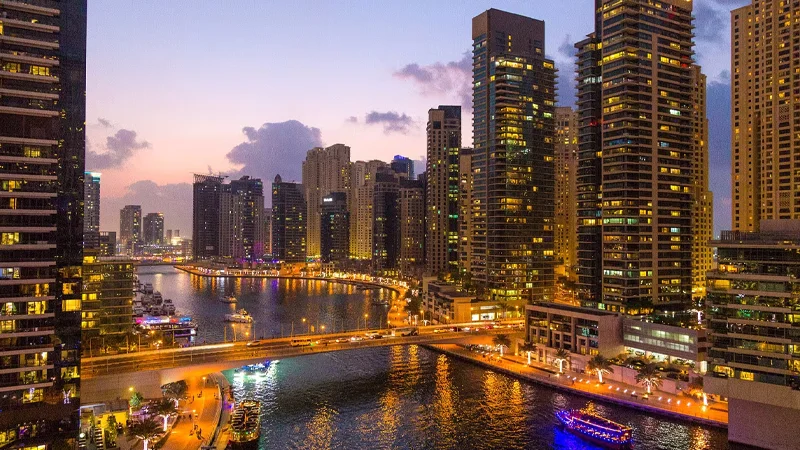
Where exactly should you put your money? These neighborhoods offer the best potential for strong returns.
Dubai Marina
This waterfront district remains consistently popular with investors, offering stunning views and a vibrant lifestyle. Dubai Marina saw significant transaction volume in 2024, ranking third for apartment title deed transactions with 2,963 sales. Dubai Marina is also identified as one of the areas with largest upcoming supply, with over 2,000 new units in the pipeline until 2027.
Jumeirah Village Circle (JVC)
JVC offers affordability combined with significant growth potential in the Dubai real estate market. It dominated the market in 2024, claiming the number one spot for apartment sales – for both title deed and off-plan transactions, at 4,048 and 11,917 respectively. The area delivered approximately 4,800 units in 2024, making it the second-highest in terms of completed projects. The future for JVC looks particularly bright in the Dubai real estate market future, with almost 25,000 units set to be delivered between now and 2027 – topping the future supply table across all Dubai areas. This abundant pipeline means plenty of opportunity for new investors, highlighting the strong property investment benefits in Dubai.
Business Bay
Business Bay has emerged as a top performer in the Dubai real estate landscape, ranking second for title deed transactions with 3,400 sales and seeing 6,779 off-plan transactions in 2024. The area delivered 2,800 new homes in 2024 and is set to add approximately 16,000 more units by 2027, positioning it firmly among the most active development zones.
Damac Island
This master-planned community features luxury properties amid lush landscapes. The area provides excellent value compared to more established districts, with competitive entry prices and strong growth potential. Future infrastructure developments will enhance connectivity and accessibility. Damac’s reputation for quality construction assures investment security, while diverse property types cater to different investment budgets, from apartments to luxury villas.
Dubai Creek Harbour
This master development by Emaar creates a new iconic skyline blending waterfront luxury with urban living. The area recorded 4,000 sales transactions totaling AED 8.72 billion and ranks among Emaar’s top three master communities with promising growth prospects. Creek Harbour benefits from proximity to Downtown Dubai while providing various property types from apartments to luxury penthouses, appealing to diverse investor preferences.
Emaar The Oasis
This newer development offers contemporary living spaces with premium finishes built to Emaar’s signature quality standards. Strategic location provides good connectivity to key Dubai areas, while competitive pricing structures make entry accessible for various investor types.
The development includes comprehensive amenities for residents, with Emaar’s reputation adding investment security and resale potential. Market watchers appreciate the growth trajectory as the community establishes itself among Dubai’s premium residential offerings.
Palm Jebel Ali
This ambitious project creates a new waterfront destination twice the size of Palm Jumeirah,. The master plan includes extensive amenities and recreational facilities, with properties featuring waterfront living and spectacular views. Long-term growth potential looks particularly strong with Dubai’s southwestern expansion. You can easily take advantage of entry-level pricing before completion.
Damac Riverside
This newer development offers contemporary design with premium finishes in a waterfront setting. According to recent data, DAMAC Riverside ranked third in off-plan searches, demonstrating strong market interest and investment potential. Development features include lush landscaping and waterfront promenades, with Damac’s payment plans making entry accessible for various investors.
Expert Investment Strategies

Smart moves make all the difference in real estate. Here’s how to approach your Dubai property investment like a pro.
Research and Due Diligence
Thorough research forms the foundation of successful Dubai real estate investment. Market dynamics and regulatory frameworks vary significantly across neighborhoods, requiring careful assessment of different areas and property values.
Investigate developers’ track records and project completion history before committing capital. Verify property ownership rules in your chosen area and calculate all associated costs beyond the purchase price, including registration fees, service charges, and potential management expenses.
Work With Local Agents
Partnering with reputable local real estate agents provides valuable insights into current market trends and neighborhood dynamics. Local professionals understand pricing patterns and can navigate Dubai’s property regulations efficiently, saving time and reducing risk.
Select agents licensed by the Dubai Land Department (DLD) and RERA for maximum protection. Verify their experience with your preferred property type and area, requesting transaction history and client testimonials to ensure reliability.
Consider Property Type and Location
Different property types serve different investment objectives – apartments typically offer higher rental yields than villas, while waterfront properties command premium prices with strong appreciation potential.
Location significantly impacts both rental income and capital growth prospects. Properties near tourist attractions work well for short-term rentals, family-friendly communities attract long-term tenants with children, and areas near business districts appeal to working professionals.
Financial Planning
Solid financial planning maximizes investment returns through careful budget analysis. Factor in additional costs like the 4% registration fee, service charges, and potential property management expenses if not self-managing.
Consider mortgage options if financing your purchase, as developers often offer attractive payment plans for off-plan properties. Calculate expected return on investment before committing and factor in potential vacancy periods in cash flow projections to ensure alignment with long-term financial goals in the Dubai real estate market future.
Conclusion
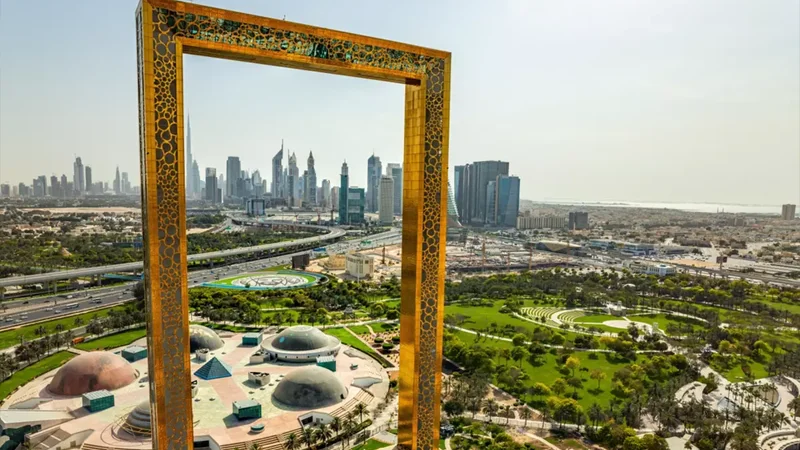
Dubai’s real estate market offers exceptional investment potential backed by strong fundamentals. Tax advantages, high rental yields averaging 6-7%, impressive capital appreciation, and residency options create an attractive package for global investors. The market is transitioning from rapid growth to a more sustainable trajectory. ValuStrat is projecting that capital values will increase by 5-10% in 2025.
Market experts note two significant shifts occurring simultaneously in the Dubai Real Estate market future. First, ready-to-move-in property demand grew in 2024 as more tenants turned to ownership due to high rentals and dropping mortgage rates. Second, demand for affordable units has increased, with two out of five ready sales involving units priced below AED 1 million.
As Abdullah Alajaji of Driven Properties notes, “There was also a noticeable shift toward smaller units in terms of size, which has been a defining characteristic of the market. We observed sustained demand in both the luxury property and off-plan markets, trends that we believe will persist into 2025.”
The combination of government support, population growth approaching 5.8 million by 2040, and global connectivity creates a promising environment for property investment benefits in Dubai. Whether seeking rental income from yields exceeding 10% in some areas, capital appreciation that saw 54% increases in top-performing neighborhoods, or a combination of both, Dubai offers compelling advantages over many global alternatives.
As with any investment, success depends on thorough research, strategic planning, and careful property selection. By applying the expert strategies outlined here, you position yourself to benefit from Dubai’s continued real estate growth story in 2025 and beyond.



